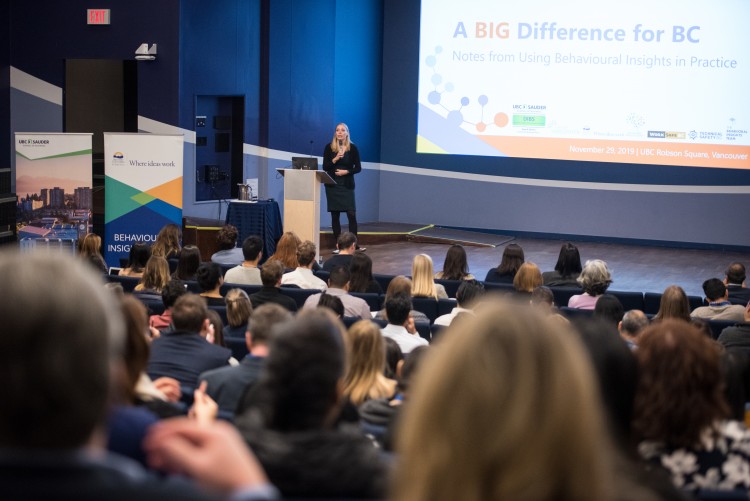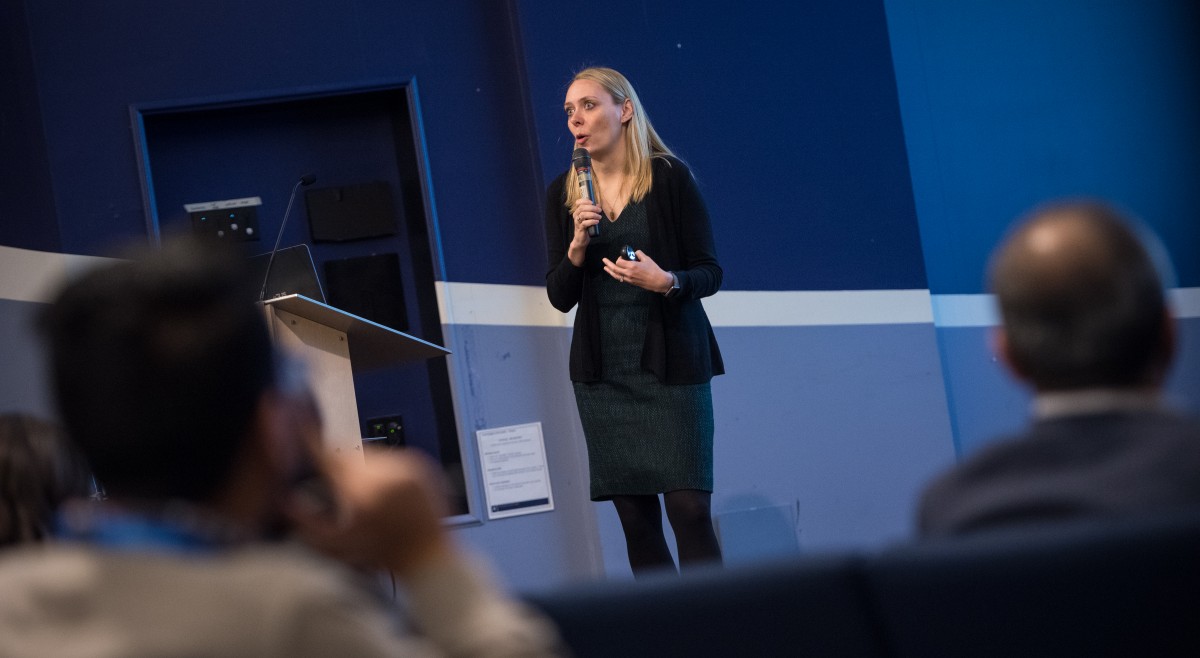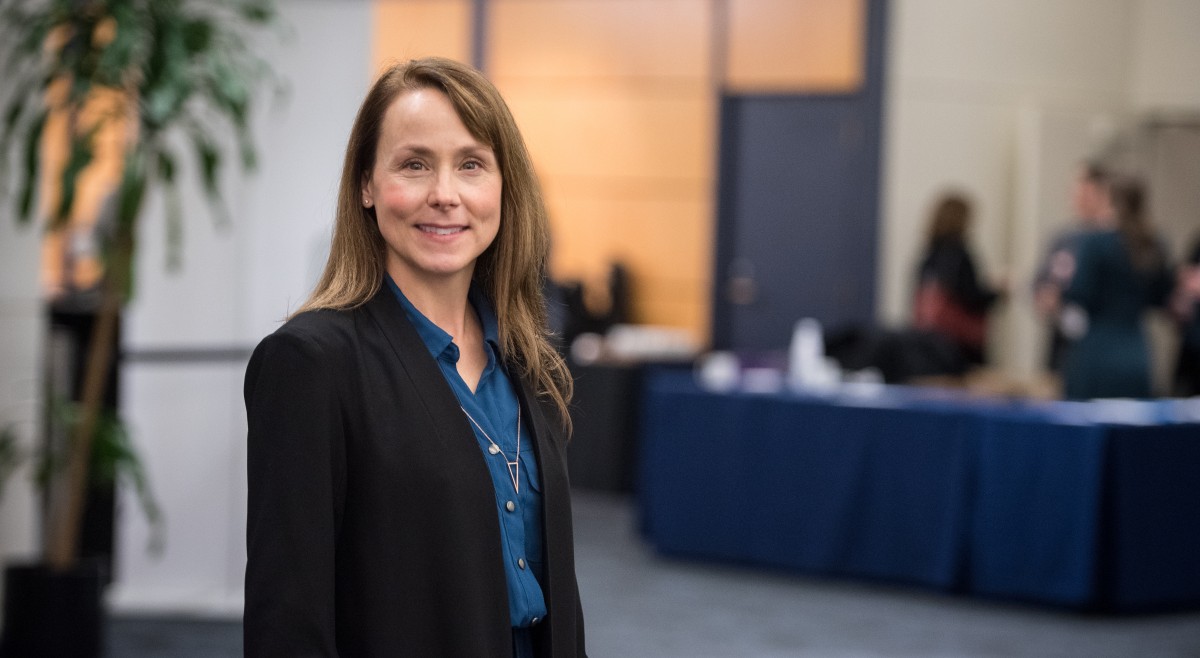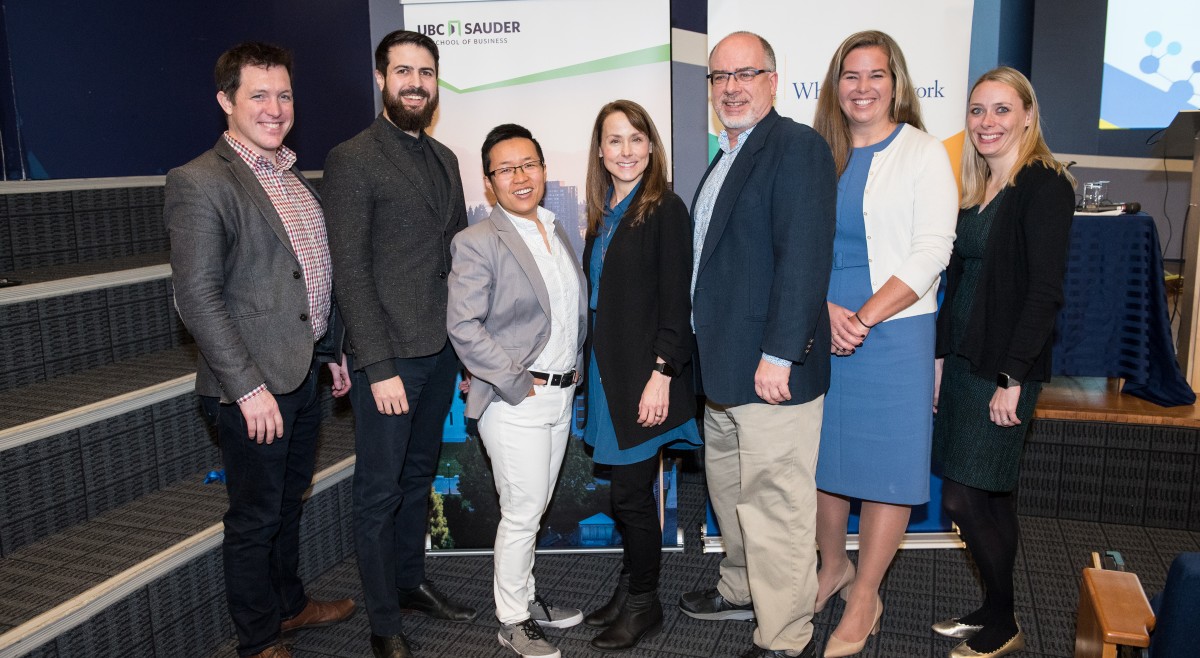From getting people to reduce their plastic waste to better preparing them for an earthquake, Behavioural Insights (BI) can form the blueprint to navigate complex decisions and actions.
In a bid to promote new research in BI and accelerate momentum in the field, UBC Sauder's behavioural research and policy solutions initiative — Decision Insights for Business and Society (DIBS) — recently co-hosted the conference, A BIG Difference for BC, at the UBC Robson Square campus.
Along with the B.C. government's behavioural science and evaluation unit, BC Behavioural Insights Group (BIG), UBC Sauder brought together researchers and practitioners from federal and provincial governments, semi-government and private corporations, and non-profit organizations that use lessons about human behaviour to innovate and find solutions.
Growing with collaborations
BI uses psychology, economics and other social science methods to examine how people behave in the real world, as opposed to the conventional wisdom that "all consumers act rationally." The result is the ability to harness empirical observations and data to help people make positive changes, be it in the workplace, at a supermarket, or in policy circles.
Kirstin Appelt, Adjunct Professor at UBC Sauder and member of DIBS, said that while the field of BI has grown rapidly in the last several years, much of it still functions in silos. Events such as the conference play an important role in bringing the community together.
"As academics, we can't solve societal challenges without real-world partners and stakeholders. And the partners may not have some of the research expertise or behavioural and decision science expertise that we do. So, it's only by working together that we can really work on these challenges," said Appelt.
Kirstin Appelt, member of UBC Sauder’s DIBS initiative called for greater collaboration between academics and government and industry practitioners.
Behavioural Insights at the government level
BI aims to tackle challenges that span multiple industries, but few outcomes affect people and communities as profoundly as decisions taken by governments. Heather Devine, Head of BC BIG, oversees the centre where the provincial government's policies are informed by science and research from various academic disciplines.
This new approach is yielding results. For example, a project launched in collaboration with B.C.'s Ministry of Finance, found that businesses often delay paying provincial sales tax (PST) if they receive a reminder too early. The BIG team observed that people are more likely to plan for the week ahead and not 30 days in advance.
"We decided to provide timely reminders five days and one day prior to the payment due date and see if that makes a difference for people," explained Devine. It worked. The delinquency rate on payments reduced by half, resulting in quick recovery of revenue for the B.C. government and a more positive experience for business owners.
Like Appelt, Devine reinforced the importance of events like A BIG Difference for BC that help people join forces and bring tangible solutions from paper to practice. "We've got all of these great academics and practitioners bubbling up in various places in B.C. and in neighbouring jurisdictions and we saw there was a need to bring them together to build a community."
Heather Devine, Head of BC BIG, oversees implementation and testing of solutions to improve the B.C. government’s programs, policies, and services.
Leveraging partnerships
UBC Sauder's DIBS initiative, and by extension the event, is rooted in bringing academia into the field — to see that studies find their way beyond scholarly journals and into real-world applications. Building partnerships with organizations is central to achieving this vision. WorkSafe BC, a provincial agency that that enforces BC’s occupational health and safety regulations, is one such partner of the event and UBC Sauder's DIBS centre.
Kerri Buschel, Director of Experience, Insights and Marketing at WorkSafe BC, said the school plays a critical role in deepening the industry's knowledge of BI trends and helping them develop best practices. "We often turn to UBC Sauder, both as a partner in behavioural research and in a higher education capacity, to seek new ways to expand our tools and skillset in supporting workers and employers in BC around health and safety."
For current and future policymakers and business leaders, Buschel has a message: put people first. "We need to be thinking about why people do the things that they do and what motivates them," said Buschel. "And if we can start all of our problem solving and thinking from the people's perspective, instead of thinking about it from process alone, then we'll not only be able to solve more problems, we’ll be helping more people."
Kerri Buschel [second from right], Director of Experience, Insights and Marketing at WorkSafe BC, encouraged current and future policymakers and business leaders to put people first.




